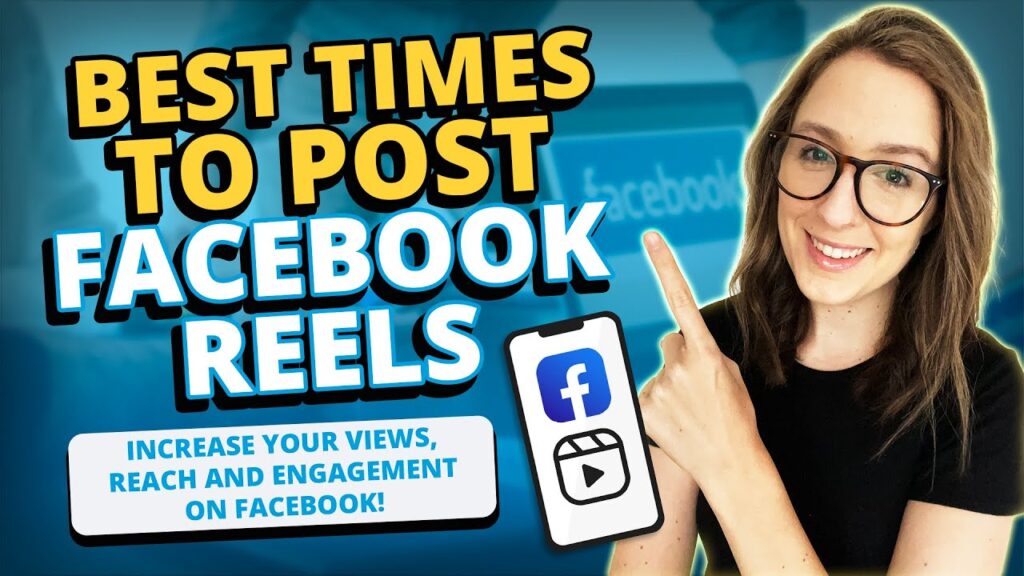Facebook was invented on february 4th, 2004. The platform was created by mark zuckerberg and his college roommates.
Facebook, the world’s largest social networking site, has become an integral part of our daily lives. With over 2. 8 billion active users worldwide, it has revolutionized the way we communicate, share, and connect with people. But when was facebook invented? The genesis of facebook lies in the dorm rooms of harvard, where mark zuckerberg, along with his college roommates, eduardo saverin, andrew mccollum, dustin moskovitz, and chris hughes, created the social networking site in 2004.
The idea was to create an online platform that would allow students to connect with their peers and share information. Today, facebook has expanded beyond its initial target audience and has become a global phenomenon, with millions of users from all walks of life.

Credit: view.publitas.com
The Spark: How Facebook Was Founded
Facebook is a social media platform that has revolutionized the world in a way that few could have predicted. It’s hard to imagine life today without it. But how did it all begin? What was the spark that ignited the idea that would ultimately lead to the creation of facebook?
In this post, we’ll explore the early days of the platform, and the story of its founder, mark zuckerberg, and his co-founders.
The Story Of Mark Zuckerberg And His Co-Founders
Facebook was the brainchild of mark zuckerberg, then a student at harvard university. Together with his three co-founders, andrew mccollum, chris hughes, and eduardo saverin, zuckerberg set out to create a social networking site that would connect people all over the world.
The four friends had a shared vision of creating a platform that would allow people to communicate and share information in new and exciting ways.
The Initial Idea Behind Facebook
The idea behind facebook was simple: connect people. Zuckerberg and his friends realized that there was a need for a platform that could connect people and allow them to share information more easily. At the time, there were already a number of social networking sites in operation, but none of them had the same level of functionality and user-friendliness that the team had in mind.
The initial idea was for a platform that would allow students at harvard to connect with each other more easily, but the team soon realized that the potential was far greater than they had initially thought.
The Development Of The Prototype
Once the team had settled on the concept of a social networking site, they set about developing a prototype. The first version of facebook was called “thefacebook” and was launched in early 2004. The initial version of the site was simple, but it was also incredibly effective.
It quickly gained popularity among students at harvard and soon expanded to other universities and colleges across the us.
Facebook’s success was built on a simple but powerful idea: to connect people and allow them to share information more easily. The story of how mark zuckerberg and his co-founders turned that idea into a reality is a fascinating one that continues to inspire new entrepreneurs and innovators all over the world.
The Early Days: Facebook’S Growth And Development
In 2004, mark zuckerberg created facebook in his harvard dormitory room. Initially, it was only available to harvard students, but soon extended to other ivy league colleges. The platform’s popularity boomed, and eventually, it became available to anyone over 13 years old worldwide.
The Launch Of Facebook At Harvard And Beyond
- On february 4, 2004, mark zuckerberg, along with his college roommates, launched “thefacebook” at harvard university.
- Shortly after that, it spread to other ivy league colleges, including columbia and yale.
- By the end of 2004, facebook had 1 million users and had extended its reach beyond college campuses.
The Expansion Of Facebook’S User Base
- Within three years of its launch, facebook’s users rose to 50 million, and by 2011 it had 800 million users.
- In 2021, facebook boasted of having approximately 2. 8 billion monthly active users worldwide.
- Facebook’s user base expansion can be attributed to the introduction of the platform to non-students and individuals worldwide.
The Addition Of New Features To The Platform
- Facebook initially only had the ability to create a profile, upload photos, join groups, and like content.
- Over time, features such as messenger, marketplace, and live video streaming were added.
- Facebook’s core features still remain, but the platform continually evolves to accommodate the growing needs of its users.
Facebook has grown significantly since its inception, evolving to become a social media platform with an extensive user base and cutting-edge features. It’s exciting to speculate about what new features and innovations await facebook in the future.
The Facebook Lookback Theme [Full Cover by TheChiefEmperor]
The Turning Point: The Rise Of Facebook’S Dominance
Facebook’S Shift From A Small Social Networking Site To A Global Juggernaut
Facebook’s explosion in popularity transformed it from a small social networking site to the behemoth it is today. Beginning as a way for college students to stay connected, facebook quickly became the go-to platform for connecting with friends and family, and eventually, businesses and brands.
- The expansion of facebook beyond college campuses, allowing anyone with an email address to join
- The introduction of facebook pages, enabling brands, celebrities, and organizations to create and manage their own online presence
- The introduction of advertising on facebook, making it a valuable tool for businesses to reach their target audience
The Introduction Of The Facebook News Feed
One of the most significant developments in facebook’s history is the introduction of the news feed in 2006. This feature transformed facebook from a simple message board-style platform to a dynamic, real-time source of news and information for users. The news feed allowed users to see updates from their friends and connections in a feed format, rather than needing to individually visit each profile.
- The news feed’s algorithm, which prioritizes the content that users are most likely to engage with, set the stage for facebook’s focus on engagement and keeping users on the platform
- The news feed made facebook a much more visually-oriented platform, as users could now see photos and multimedia content much more easily
The Acquisition Of Instagram And Other Social Media Platforms
Facebook’s acquisition of instagram in 2012 was one of the most significant events in the history of social media, and it cemented facebook’s position as the dominant force in the industry. Since then, facebook has made several other high-profile acquisitions, including whatsapp and oculus vr.
These acquisitions have allowed facebook to expand beyond its original platform and diversify its offerings.
- The ability to integrate popular features and technology from acquired platforms into facebook’s core product
- The ability to eliminate competition and consolidate power within the social media industry
The Impact Of Facebook: Changing The Way We Communicate And Connect
When facebook was invented, no one could have predicted the massive impact it would have on society and the way people communicate and connect with each other. From a small social networking site launched in 2004 by mark zuckerberg, facebook has quickly become one of the most significant players in the digital world.
Let’s take a closer look at the impact of facebook and its various effects on our society.
The Social And Cultural Impact Of Facebook On Society
In just a few short years, facebook has completely transformed the way we communicate with each other.
- Facebook has made it easier to stay connected with friends and family who live far away.
- Facebook has created new avenues for social interaction, with features like groups and events helping people connect with others who share their interests.
- Facebook has enabled people to share personal updates and photos with a wide audience, which has created new social norms around self-expression and sharing.
The Effects Of Facebook On Traditional Media And Journalism
Facebook has also had a significant impact on traditional media and journalism.
- Facebook has become a major source of news for many people, often leading to increased engagement with the news and more opportunities for citizen journalism.
- The rise of facebook has hastened the decline of traditional print media, with many newspapers struggling to compete with the immediacy and reach of social media.
- Facebook has also changed the way media companies operate, with many outlets now focusing more on digital content and social media strategies.
The Rise Of Social Media Influencers And Advertising On Facebook
As one of the largest social media platforms in the world, facebook has created new opportunities for advertisers and social media influencers.
- Facebook has created new opportunities for social media influencers, with many businesses hiring influencers to boost their social media reach.
- Facebook advertising has become a major source of revenue for the company, with businesses of all sizes using the platform to reach new customers.
- The use of social media influencers and advertising on facebook has created new challenges around transparency and authenticity, with some influencers and advertisers facing accusations of dishonesty or manipulation.
Overall, facebook has had a profound impact on our society, transforming the way we interact with each other and changing the face of traditional media and advertising. While there are certainly benefits and drawbacks to the rise of facebook, there is no doubt that it will continue to be a major player in our digital world for years to come.
Frequently Asked Questions On When Facebook Was Invented
Conclusion
As we conclude our journey into the origins of facebook, it’s clear that this social media platform has come a long way since its inception in 2004. What started as a means for college students to stay connected, has evolved into a global phenomenon with more than 2 billion active users.
Mark zuckerberg’s visionary leadership has not only revolutionized the way we communicate, but has also changed the face of modern business. Today, facebook serves as a powerful marketing tool for businesses and a source of information for users around the world.
Whether or not you’re a fan of facebook, there’s no denying its impact on our society. With constant updates and changes, it’s exciting to see where this platform will take us in the future. So long live facebook, and here’s to the next chapter in its ongoing evolution.



